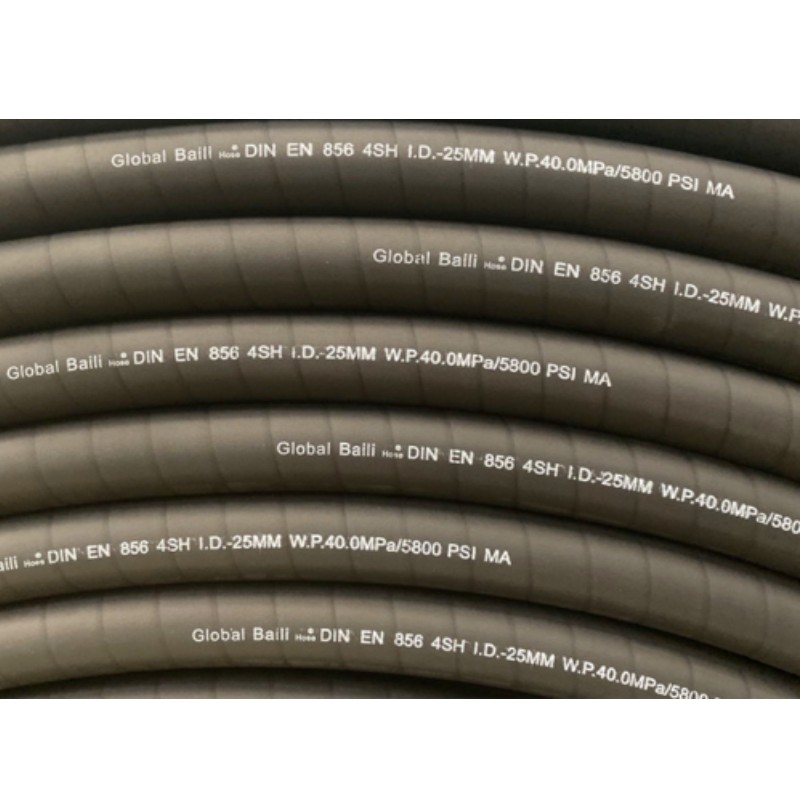Nov . 07, 2024 23:04 Back to list
Automotive Hose Company Achieving CE Certification for Quality and Safety Standards
CE Certification for Automotive Hose Companies Ensuring Quality and Safety
In today's highly competitive automotive industry, ensuring the quality and safety of components is paramount. One of the most crucial certifications that a manufacturer can achieve is the CE certification. For automotive hose companies, obtaining this certification is not just a mark of quality but a gateway to access markets in the European Economic Area. This article delves into the significance of CE certification for automotive hose manufacturers and the steps involved in achieving this recognized standard.
Understanding CE Certification
CE marking indicates that a product meets the essential requirements of relevant European directives and regulations. It stands for Conformité Européenne, which translates to European Conformity. This certification signifies that the product, including automotive hoses, complies with European health, safety, and environmental protection standards. In the automotive sector, components must meet stringent requirements to ensure vehicle safety, performance, and reliability.
Importance for Automotive Hose Companies
1. Market Access CE certification is often a legal requirement for products sold in the European market. For automotive hose companies aiming to export their products, obtaining this certification is essential. Without it, products may be detained at customs, resulting in financial losses and damage to reputation.
2. Consumer Confidence Consumers today are increasingly aware of product safety and quality standards. By obtaining CE certification, automotive hose manufacturers can instill confidence in their clients and end-users. This certification serves as a quality assurance tool, demonstrating a commitment to high safety and performance standards.
3. Competitive Advantage In a crowded marketplace, having the CE mark can set a company apart from its competitors. It showcases a commitment to quality management and regulatory compliance, making it an attractive choice for automotive OEMs (Original Equipment Manufacturers) and suppliers.
4. Regulatory Compliance With the automotive industry's rapidly evolving regulatory landscape, staying compliant is crucial. CE certification helps manufacturers keep abreast of necessary changes and requirements, reducing the risk of penalties and recalls.
Steps to Achieve CE Certification
ce certification automotive hose company

Achieving CE certification involves several steps, which vary slightly depending on the specific directives applicable to automotive hoses. Below are the general steps that automotive hose companies need to follow
1. Determine Applicable Directives Identify the European directives that apply to the specific type of automotive hose being manufactured, such as the General Product Safety Directive or the Pressure Equipment Directive.
2. Conduct a Risk Assessment Evaluate the potential risks associated with the production and use of the hoses to ensure that safety measures are implemented effectively.
3. Testing and Evaluation The hoses must undergo rigorous testing to ensure they meet the required safety and performance standards. This process may involve testing for durability, flexibility, and resistance to various environmental factors.
4. Technical Documentation Prepare comprehensive technical documentation that outlines the design, manufacturing processes, and evaluation methods used to ensure compliance with relevant standards.
5. Declaration of Conformity After successful testing and evaluation, the manufacturer must prepare a Declaration of Conformity, declaring that the product meets all applicable CE requirements.
6. Affix the CE Mark Once all steps are complete, the CE marking can be affixed to the product, indicating compliance and facilitating market access.
Conclusion
In conclusion, CE certification is vital for automotive hose companies aiming to thrive in the global marketplace. It provides not only regulatory compliance but also enhances brand reputation and customer trust. By implementing stringent quality control and adhering to the required directives, manufacturers can ensure their products are safe, reliable, and ready for the challenges posed by modern automotive engineering. For companies in this sector, investing in CE certification is an investment in their future success and sustainability.
-
Best Four Steel Wire Spiral Hose Hydraulic R12 – Durable High-Pressure Hose Manufacturer
NewsJul.08,2025
-
High-Quality 1/4 Hydraulic Hose – Soft, Flexible & Durable Rubber Hoses for Industrial Use
NewsJul.08,2025
-
1 1 2 Inch Hydraulic Flexible Hose - Durable, Reliable, High-Pressure Solutions
NewsJul.07,2025
-
High-Quality 1 2 Rubber Hose - Durable, Flexible Hydraulic Solutions
NewsJul.07,2025
-
Discover SAE Hydraulic Hose Types - High Quality & Durable Hoses from Leading Factory Supplier
NewsJul.06,2025
-
High Pressure Wire Hydraulic Rubber Hose Supplier Durable & Reliable 1SN Hose Solutions
NewsJul.06,2025
